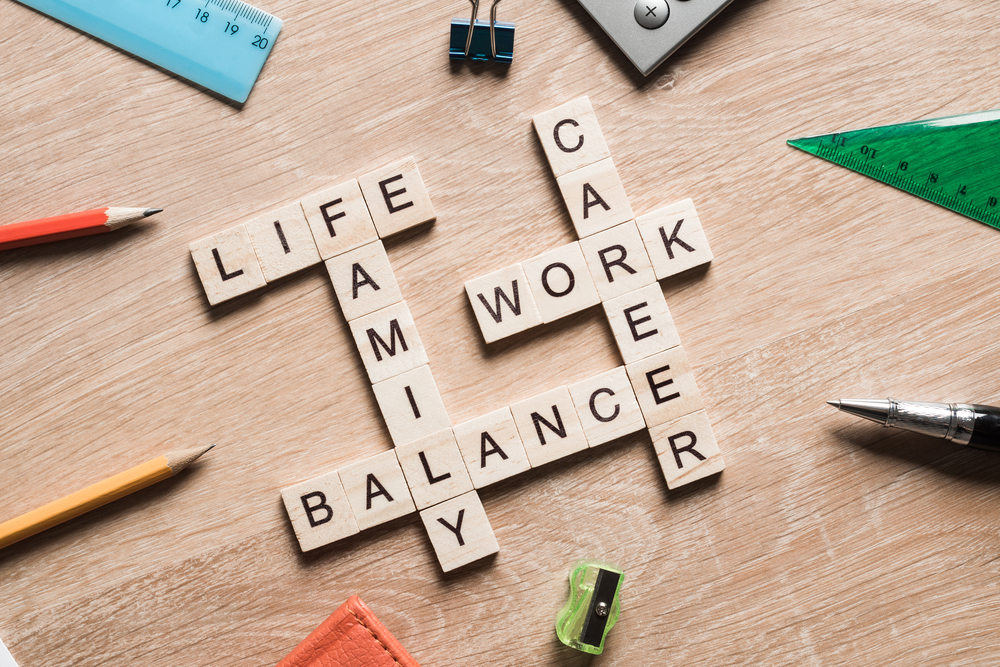The world has gone mad for shared parental leave (SPL). Thanks to the Government’s #sharetheleave campaign and the Women and Equalities Committee’s intervention, SPL has been making the headlines a great deal recently.

While it’s great SPL and much-needed reform of the system is being discussed, it only tells part of the story. Some researchers from Surrey University have just published a study based on interviews with 24 fathers that shows what happens after men take on caring responsibilities for their kids.
I’ve been the main carer in this household since 2011. When I read what the guys at Surrey University had unearthed, I found myself nodding in passionate agreement with some of it and totally bemused by other aspects.
If you want all the detail, you’ll find it all here. I thought I’d just go over a few of the highlights, elements that spoke to me, for want of a different phrase.
SPL is only one option
SPL is something I have written about a great deal. One aspect of SPL that is frequently overlooked is that it gets men involved as fathers from the moment their kids are born and the positive impact this has on the entire family.
There’s masses of evidence showing that the key to having an involved, hands-on dad is getting him to look after and care for his newborn. Once mum is established as the main carer, it’s very difficult to break that cycle. A hands-on dad results in better educational outcomes and lower criminality and if mum and dad split up, the dad who has been involved from the start is more likely to remain an active part of his kids’ life.
SPL, however, is only one option. The Surrey University researchers discovered that many of the men they’d interviewed had not taken SPL. Broadly speaking, a familiar pattern emerged whereby they became the main carer for their kids after mum had taken an extended period of maternity leave. In addition to this, many of the men had left full-time jobs and taken on part time roles, combing this with childcare.
Interestingly, this is exactly what I did back in 2011. I left full time work to go part time for a while and only later on did I give up employment altogether. With both my kids at school, I am now doing some freelance work during school hours, as many mums do.
Is it simply more acceptable for men to carry on working in some capacity? Are men reluctant to give up work altogether?
Dare I say it, is it possible that men are simply being more honest about combining economic activity with childcare? Very few stay at home parents are completely economically inactive. Are men, because of the way they’re raised, more willing to say; “yeah, I do some work, but I look after the kids as well.” Is it possible that mums, who face greater judgement, will identify as parent first and employee second? Answers on a postcard please.
Introducing the Interchangeable Parent
You’ve heard of the Earth Mother, Tiger Mum, Eagle Dad and Helicopter / Lighthouse Parent. Well here’s a new one for you, the Interchangeable parent.
Men who do most of the caregiving come to regard themselves as equal with mum and able to tackle any day-to-day parenting task. The reality, it seems, is somewhat different and I’ll confess that for a guy in my position, this made for uncomfortable reading.
The research shows these dads may be perfectly competent at cooking meals, playing games, and nurturing their kids. In many instances, however, it’s mum who continues to carry the domestic ‘mental load’ dealing with childminders, babysitters, medical professionals and other parents.
While I may mock the Interchangeable Parent label, this raises a serious issue. Whether you’re male or female, if you’re the main carer for your kids, surely you should be doing this stuff? Okay, maybe you shouldn’t be doing absolutely everything, but doesn’t it come as part of the package that you have the doctor / dentist’s / childminder’s / your kids’ best friends’ parents on speed dial on your phone?
In fairness, some compelling reasons were put forward as to why men sometimes don’t fulfill these tasks. Health professionals and early years professionals share some of the responsibility as their default position is to deal with mum, cutting dad out of the equation. Once that relationship with mum is in place, well, it’s difficult to re-wire.
If I compare this to my own relationship, the reverse is true. My wife hasn’t arranged a doctor or dentist’s appointment for our kids in years and liaising with other parents is pretty much down to me.
I found that when dealing with any form of professional, I had to go in and take charge of the situation. Whoever I was dealing with, be it a GP or a school teacher, I have to say: “I’m the main carer, 99% of the time you’ll be dealing with me.” Once I’ve had that conversation with someone, the relationship tends to work very well.
The findings of this research surprised me greatly. The explanations made sense, but this research suggests there’s a need for some men to be more confident. Us guys need to stroll into that medical centre / school / nursery with our shoulders high, own the situation and make clear who’s the boss. It’s what women have been doing in the workplace for years. Maybe us guys need to do the same in our domestic lives?
Men are uncomfortable at parenting groups
The exact phrase used in the research is that men feel “anxieties” at the thought of attending parenting groups because they know they’ll be so heavily outnumbered by mums. Added to this, most groups that are set up for men tend to cater for working dads.
I’ll tackle that second point first of all. I know that in my area there is at least one Saturdads group that, surprise surprise, meets on a Saturday. For dads in full time employment I think it’s an excellent idea. After a week of doing school runs, the last thing I want to do at the weekend is take my kids to a Health Centre and hang out with a handful of dads and their offspring. The result: I have never been.
As for feeling anxiety, I did take my kids to one or two groups when they were younger, but I’ll admit I gave up. Baby and toddler groups had such little appeal and it gets incredibly tiring constantly explaining you’re the childs’ main carer. At that point I found I either became an object of fascination or had to make an extra-special effort to be accepted into any group.
I also recall one occasion when I strolled in to the library when my kids’ school was shut because of snow. Unbeknownst to me, a Rhyme Time session was in progress. This particular library is on two levels and my daughters and I were walking down the staircase as the session got underway directly beneath us. It gave us a fascinating view of what was going on below. It was quite a sight and the three of us stopped and looked on as the session started.
A group of mums who seemingly knew each other rattled off nursery rhymes at frightening speed while bouncing children on their knees. A female librarian had sectioned off this part of the library with a physical barrier about one and half metres in height. I seem to recall there was a dad within this exclusion zone, but he was looking at books so I assumed his kid was being bounced on mum’s knee while listening to Old MacDonald.
The physical barrier, the lack of men taking part in the session and the social networks that already seemed to be in place between these mums made for a very bizarre atmosphere. My kids were dropping hints they wanted to take part but it would have been like going into a pub rammed with rowdy football fans. I feel daft for saying this because there were no ‘Women Only’ signs in place or armed guards keeping men out, but it was very unwelcoming and unappealing.
This flies in the face of what I have said above about being more confident. This is, nonetheless, a tougher situation as you aren’t dealing with professionals who have an obligation to accept you and have dealt with all manner of family set ups, but with mums who may have no interest in getting to know you and have never have met a stay at home dad.
Reluctance to attend parenting groups has a further impact on the family. You don’t build up a network of ‘mum friends’ who you can rely on for help or offer help to when someone is in need. If you have no ‘mum friends’ your kids also have a smaller social circle as they have fewer friends to play with and that’s very sad. This is something that carries on well into the school years.
Further evidence SPL needs reforming
For me, this research has been a fascinating insight into what happens after guys take on the main care giving role in the home. Much of it was scarily relatable to my own experiences.
What was quite sad, however, was seeing in black and white the impact of men not being involved with the kids from the very beginning. Once a network of medical and childcare professionals and mum friends is in place, it’s difficult for a dad to reconfigure things.
Ultimately, it’s further evidence that SPL needs reforming. A spell of ring-fenced leave for dad and properly paid paternity leave might help men figure these things out for themselves and lead to more men taking on caring roles at home.
I, for one, think that would be a great idea. I admit, however, that I am a touch biased.







6 thoughts on “The Interchangeable Parent and what happens when dad does the childcare”
A very interesting read! I’d never considered that a dad who is the main carer would have to announce themselves as such, but there is definitely a culture of teachers, doctors etc always dealing with mums.
I must say I never went to any sort of baby or toddler group because they made me feel uncomfortable! When my eldest was little I was working full time and I still worked a lot when the others were little. I didn’t want to waste what little time I had hanging out with mums and babies I didn’t know singing nursery rhymes! I don’t think either my kids or myself have been harmed in any way as a result of this decision.
I’m afraid it is very true Sarah, you have to lay down the ground rules from the start or you will be treated differently.
The latter half of your comment is very interesting. I’ve long thought the full time working mum and stay at home have a lot in common. They have smaller networks of mum friends, they can be more isolated and so on. Solidarity sister!
Another great article John.
“Us guys need to stroll into that medical centre / school / nursery with our shoulders high, own the situation and make clear who’s the boss. It’s what women have been doing in the workplace for years. Maybe us guys need to do the same in our domestic lives?”, when I first read this, I thought hell no, we shouldn’t have to, however, I think you’re spot on. We have to balance the aspirational model of tomorrow with the possible uncomfortable reality of today.
It’s particularly troubling when we couple that gender inequality, with knowing what we know, about men’s health and male isolation. I believe as more men step into the role of the main carer, we are walking eyes open into a mental health tornado. The recognition of rising expectation with ongoing lack of tailored provision is why we do, what we do at TDC.
The point about reconfiguration is also totally on point, great work.
Oh that was a provocative statement Jon, it was meant to be! truth is, if we want change, if we want to accepted as equals with mums on the domestic front, us men have got to make it happen. We shouldn’t have to prove our abilities, but it is the uncomfortable truth you talk about: We simply have to.
Very good point you make about men’s mental health and isolation. I have been contacted in the past by stay at home dads who seemed to be very troubled individuals. I think isolation and lack of service provision will have exacerbated their situation. If, however, medical professionals are so focused on mums, how will they pick up on issues affecting dads?
Love this!
Very glad to hear you enjoyed this. Hope yo come back to the blog another time.